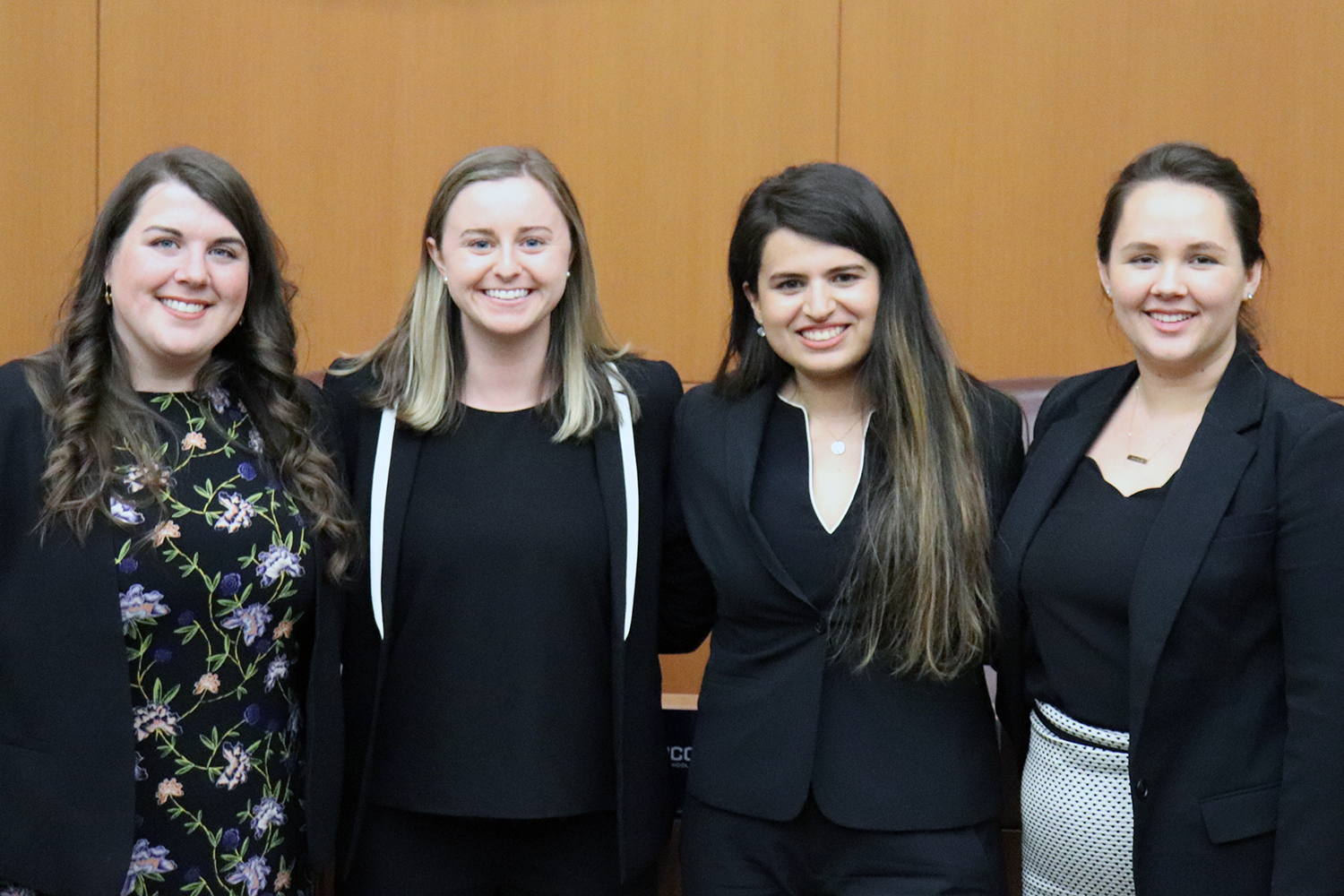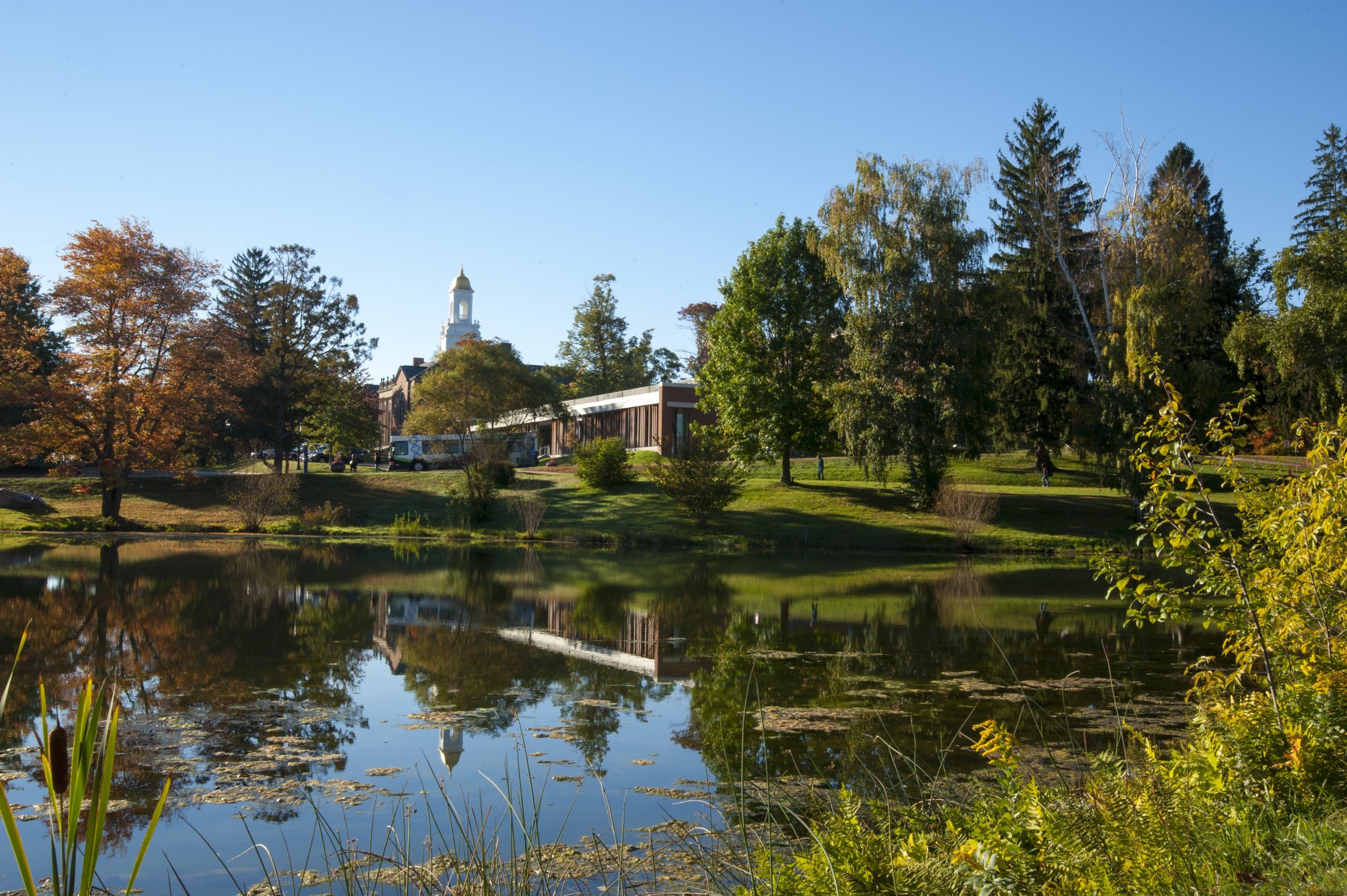Arguing a case before three distinguished jurists was the “the scariest thing I’ve ever done in my academic career,” said Abby Booth ’22, after she and Sarah Wylie ’22 won the 2020 Alva P. Loiselle Moot Court Competition at the UConn School of Law.
The final session of the annual competition, which gives first-year law students a chance to practice courtroom skills, was held in the William R. Davis ’55 Courtroom on the UConn Law campus on March 5, 2020. The judges, all UConn Law alumni, were Christopher Droney ’79, a former judge of the U.S. Court of Appeals for the Second Circuit; Andrew McDonald ’91, a justice of the Connecticut Supreme Court; and Ingrid Moll ’99, a Connecticut Appellate Court judge.
Despite the fear factor, “it was an honor to argue in front of three esteemed Connecticut judges,” Booth said. “And it was definitely a once-in-a-lifetime opportunity to be able to discuss that kind of topic with a former federal judge.”
That kind of topic was the constitutionality of laws restricting female nudity. The two teams of argued the real-life case Pierro v. New Hampshire, in which two women arrested for going shirtless in public sued, claiming the law they were accused of breaking violates the 14th Amendment’s guarantee of equal protection under the law.
The judges asked tough, often hypothetical questions throughout the arguments. All three commended the finalists for their extraordinary preparation, and Moll mentioned her pride at seeing four women in the final competition.
In addition to Booth and Wylie, the finalists were Abigail Bicknell ’22 and Gulrukh Haroon ’22.
Paul Chill, associate dean for experiential education, said the opportunity to go before seasoned judges to argue real cases is invaluable to students.
“The level of poise and preparation exhibited by all the finalists was extraordinary,” Chill said. “Moot court and other types of advocacy competitions help our students develop critical lawyering skills and are a valuable adjunct to our curriculum.”



